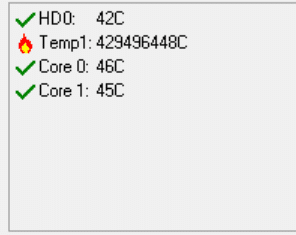Battery University is not a valid source of information. There is a whole discussion on Wikipedia on it. It turns out it was an author for a book, to provide a source of what he is saying, made himself that website.
That's like arguing that pigs can really fly, and I provide source my own website to support my argumentation.
The information provided is, however, not entirely wrong, but not entirely correct either.
Here is the discussion:
Talk:Lithium-ion battery - Wikipedia, the free encyclopedia
Battery manufacture have a wide variety of technologies. A battery might be Lithion-ion, but it is not the same as another manufacture or another model of a Lithium-ion battery. "Lithium-on" "Lithium-poly", "NiMH", etc. are just the base chemistry.
That is why for example, Sanyo Eneloops (now Panasonic), despite providing lower mAh than the competitor, are genuinely one of the best NiMH rechargeable battery you can get on the consumer market. They last longer, they hold their charge when not in used longer, and you can recharge them the most times.
This is why you have many conflicting reports on many things. And also, another factor is the charger. You have crappy chargers, and you have good ones.
The same like NiMh batteries. You can use a Smart charger and get the best performance out of the battery each time and charge quick, or you can use the ones at the BestBuy and such which are cheap, and this is something that is very noticeable.
It is possible that Microsoft used batteries that are more resistant to heat. Meaning when the CPU is throttled at 80C, it is "not so bad". Probably if the CPU gets hotter now it will be an issue, but it wont' as it is being throttled, and probably the battery temperature has headroom.
At Microsoft Surface Pro 3 AMA at Reddit, Microsoft Surface team said:
Q: (by: caliber)
I have an original Surface Pro, and my number one complaint with it is that when the battery stops holding a charge in two years, my only option is to have the entire device replaced by Microsoft for $450.
In two years, there's a good chance the device won't even be worth that much anymore, which turns the Surface Pro into essentially a disposable computer. This was almost a deal breaker for me buying my Surface Pro, and the only reason I still bought one was because I got a good enough deal on it that I've come to terms with the fact that when the battery wears out, I'll need to buy a new computer.
Is this still the case with the Surface Pro 3?
A:
The batteries on our Surface products are designed with some of the highest charge cycles for consumer electronic devices. This means that the battery can get charged daily (5 days a week) for over 4.5 years and still maintain 80% capacity.
[...]
We’ve built a great battery into the product (details above).
IF the battery fails during the warranty period, we’ll replace the battery.
IF the battery fails after the warranty period, you’ll call Microsoft support and arrange for the battery to be replaced. The cost will be $200 USD.
This is something that you normally see from other manufacture laptop. Usually after 1 year to 2 years (depending on the battery used in the system), the battery needs to be changed.
Anyway, my point, was that battery university is not a reliable source., and that not all Lithium-ion/poly batteries are the same. So your previous device experience might not reflect now.

